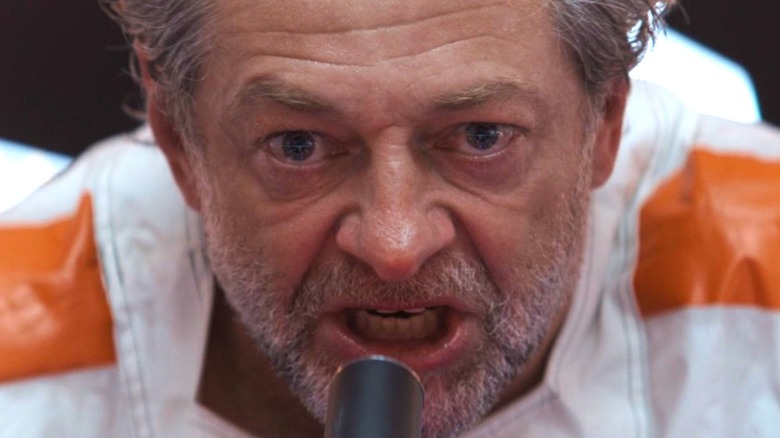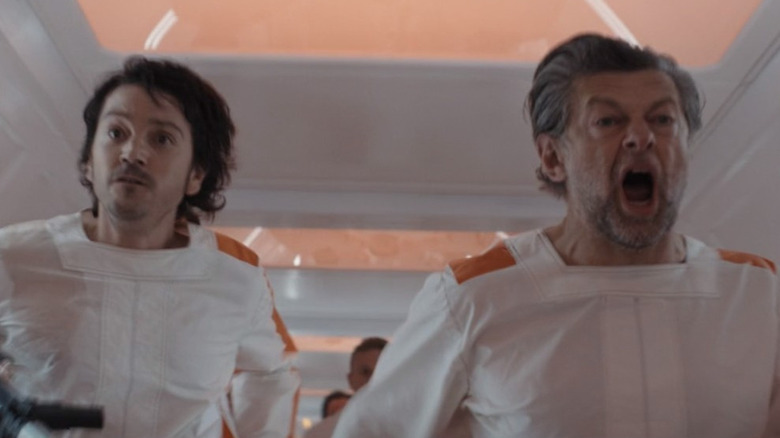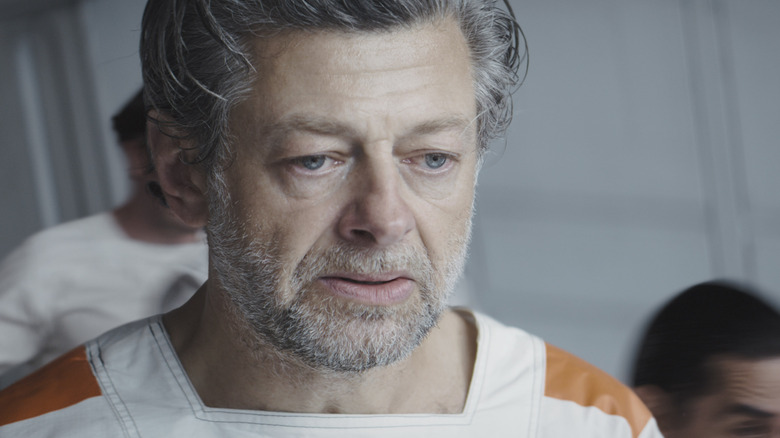Andor Proves That When You Need A Revolution Leader, You Ask Andy Serkis
"Andor" continues to reaffirming itself as the best "Star Wars" project yet, from its stunning cinematography, prestige TV-level writing, exquisite cast, and thrilling story that somehow manages to be tense and unpredictable despite us knowing full well where it all ends up. Then there's the way the show explores the Empire and the Rebellion in a more nuanced way than we've ever seen before, from selling us on the evils of the Empire and their sadism (both subtle and brazen), and the lengths the rebels go to achieve freedom. Truly, this is the first time "Star Wars" has effectively laid out why there would be a civil war by the time of the original film.
After a fantastic heist episode, we now get an exhilarating and tense prison break episode that also serves to show the start of a revolution, the start of a Rebellion, and the start of Cassian Andor as a radicalized freedom fighter willing to go on a suicide mission for the sake of the movement. Of course, a key ingredient for any good TV or movie revolution is a good leader — one that can project authority and who can make others fight with the power of a good speech.
Thankfully, "Andor" has that ingredient, and the recent batch of episodes proves something we've known for a while now: When you need a good revolutionary leader, just ask Andy Serkis.
Apes together strong!
When we first meet his character, Kino Loy, we see a stern, strict prisoner who keeps his men in line, but isn't unreasonable. He just wants to bide his time and not get electrocuted every shift. Yet, as strong and dedicated as he first appears, we get a sense that he is just desperately trying to cling onto the rules in the hope that they will actually lead to his freedom, because the alternative would be to recognize that he is going to die in a prison in the middle of nowhere.
Serkis is one of the best actors of his generation, someone capable of great and versatile roles in live-action, and of disappearing into performance-capture technology and actually using it to create performances impossible to replicate otherwise. It's why his role as Caesar in the "Planet of the Apes" trilogy is so poignant and powerful. Serkis sells the pain and desperation of the character that brings him to the edge, and the sheer willpower that pushes him to rise up and fight, while later selling the sacrifices and melancholy that comes with fighting for freedom. Serkis delivered one of the best performances in a blockbuster movie of the past decade, utilizing his eyes as his secret weapon — something he also does in "Andor." Like Caesar, Kino is a man who holds back a lot, who only lets slip the slightest of hints at what he truly thinks, and when he does, his passion can be enough to ignite a revolution.
Every great leader in a movie or TV, be it Bill Pullman in "Independence Day" or even Idris Elba in "Pacific Rim," needs a good speech to motivate his men to fight, and every great revolution needs a mantra that is catchy and powerful. Serkis' Kino had both.
One. Way. Out.
"One way out" is a poignant and powerful mantra, and his speech is a highlight of the episode. We see the initial hesitation and fear in his voice, how Cassian finally pushes him to talk and get everyone to fight, and the final resignation in Kino's voice as he realizes what awaits him outside the prison walls. This was a role only Serkis could have played, and we're all thankful for it.
It is a testament to the writing in "Andor" that they avoid having a rose-colored prison break where everyone makes it out alive, or having Kino sacrifice himself and go out on-screen in a heroic blaze of glory. Instead, in the most devastating moment of the episode, we realize why Kino has been saying he was dead before the breakout begins: He can't swim. There is no death by blaster, no "Game of Thrones" Hodor moment of holding the doors while the others escape. Instead, he leads the group and makes it out, and we leave him behind as Andor is pushed out and into the water, not knowing if Kino made the jump, too. It is a poignant moment that sells the theme of this episode, which was all about the unsung heroes of rebellions, about those who push the movement forward, knowing full well they'll never see the results. Kino led everyone to their escape, knowing he couldn't join them. There was one way out.
This is where the Rebellion begins: in a fit of rage, a burning desire for justice. We now know what they were making in the prison, and it was not the Death Star. It was 5,000 rebels.


